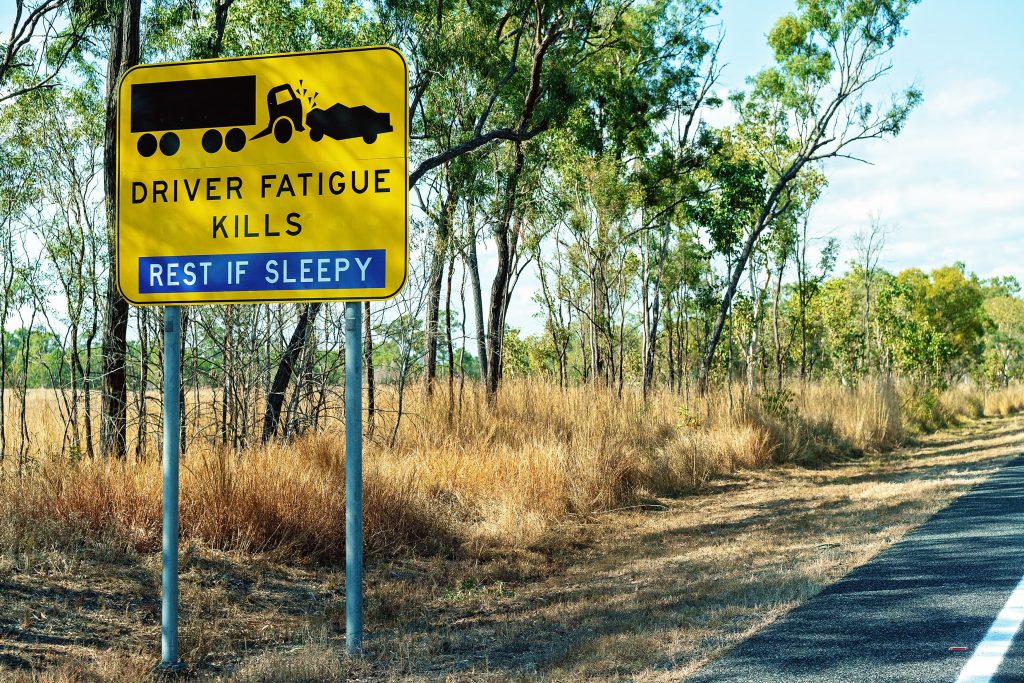
Consequences of Driving While Fatigued and How To Avoid Them
Driving fatigue is one of the most common causes of crashes on our roads, with around 20 – 30% of all road accidents being attributed to it. Because it is very difficult to measure, it continues to cause accidents, despite numerous awareness campaigns from state to state. While fatigue management is an important issue on all roads in Australia, it is particularly urgent on WA’s country roads as they are so vast. This nature of WA’s expansive landscape can unfortunately encourage some drivers to push through and ignore the warning signs of fatigue which all too often leads to road accidents. Furthermore, with the speed limits on country roads being much higher, fatigue-related crashes tend to be very serious, often fatal.
It’s therefore increasingly important that as responsible road users we look out for ourselves and each other by being vigilant in the fight against driver fatigue. In this blog, we’re going to take a look at some of the causes, symptoms and effects of drowsy driving, along with strategies to help avoid fatigue while on the road.
What Causes Driver Fatigue?
While insufficient sleep is a major contributing factor, it’s not always as simple as that. Fatigue can set in as a result of the driver’s rest and sleep habits and cycles, their physiological and psychological traits, as well as their environmental conditions.
While driving may seem like it would increase cognitive stimulation, in certain situations—particularly on long country roads—it can actually have the opposite effect, even if the driver has had sufficient sleep.
Other contributing factors can include:
- Irregular shift times
- Poor overall quality of sleep
- Excessive daytime sleepiness
- Frequent night-time driving (especially between midnight and 6am)
- Use of medications that cause drowsiness
- Driving after being awake for more than 15 hours
- Sleep disorders such as sleep apnoea
- Driving for extended periods of time
- Air toxic emissions from new motor vehicle interiors
What Are Some of the Warning Signs?
Early warning signs can be quite subtle, to begin with before escalating and becoming a bit more obvious. These initial symptoms can include:
- Wandering thoughts
- Missing a gear, road sign or exit
- Slowing or speeding up unintentionally
- Braking too late
They can quickly turn into more urgent signs that your attention to the road is severely compromised, such as:
- Yawning
- Blinking more than usual
- Having trouble keeping your head up
- Noticing your eyes closing for a moment or going out of focus
- Forgetting the last few kilometres of the journey
These indicate significant fatigued-caused cognitive impairment and a higher risk of falling asleep at the wheel. If you haven’t already, this is the point where you absolutely need to address the situation and do something to avoid continued dangerous driving.
How Does Fatigue Affect Your Driving?
Driving while having been awake for 17 hours is equivalent to driving with a blood alcohol content (BAC) of 0.05. Driving after being awake for 24 hours is equivalent to a BAC of 0.10. This impairs your awareness of your surroundings, reduces your reaction time, and if allowed to continue, will eventually result in what experts call micro-sleep.
Micro-sleeps can last up to five seconds, and are the major cause of fatigue-related crashes. A micro-sleep of five seconds at 110km/h is like travelling the length of an entire football field with your eyes closed.
Have you ever been momentarily distracted on a suburban road only to the realise you need to hit the brakes pretty hard to avoid running into the car in front? It’s alarming how quickly a hazard can present itself on the road. Now imagine closing your eyes for five whole seconds while driving at 110km/h. The consequences of driving while fatigued can not be understated.
Avoiding Fatigued Driving

The most effective protection against tired driving is to make sure you have had adequate sleep before getting behind the wheel. Other measures include taking breaks every two hours, swapping drivers if possible, and making sure the driver is hydrated and nourished. It also doesn’t hurt to stop for coffee breaks when driving long distances. It’s not wise to rely on stimulation from caffeine, but in conjunction with other safe driving measures, it can certainly help to keep the driver alert.
Car Safety Features
While we obviously want all drivers to avoid fatigue in the first place, it helps to have modern safety features in your car. Features such as multiple airbags and driver assist technologies like Lane Departure Warning and Electronic Brake Force Distribution.
What is Electronic Brake Force Distribution? It’s a braking control system that applies brake force to the wheels in a way that helps stabilise the car and reduce braking distance. This is a powerful safety feature that can help protect the car and its occupants from sudden road hazards.
At Mandurah Mazda, your safety is our number one priority, and now that you’ve read about driver fatigue, we encourage you to check out our safety tips for driving in wet weather. Education is key to road safety, and we are committed to raising awareness for all issues that affect our customers and fellow road users.
For more information about Mazda’s safety features, or to come and see them for yourself, pop into your local Mazda car dealership and test drive any of our newest models. We guarantee we have the perfect car to keep you safe and sound on our great roads.




